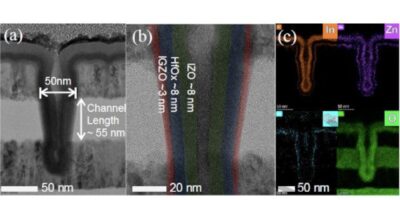
SureCore-led team wins £6.5 million to develop cryogenic CMOS IP
Besides sureCore, the team includes Synopsys, SemiWise, Oxford Instruments, SeeQC, Universal Quantum and the University of Glasgow.
Quantum computing is expected to become a powerful addition to data processing by addressing complex algorithms in fundamental science, pharmaceuticals, finance, logistics and AI. However, most quantum computing architectures either require, or can benefit from, operation at temperatures approaching absolute zero and for this it is desirable to have control circuitry that also operates at these low temperatures.
Currently the control circuitry is located remotely from the qubits and connected by expensive and bulky cabling in order to avoid the temperature extremes needed by the qubits. The amount of cabling required for all the qubits presents a fundamental barrier to QC scaling aside from the inherent latency impact.
The aim of the three-year project is to model transistor operation at close to absolute zero and then design a portfolio of CryoCMOS IP to support control functionality.
SemiWise造型工作正在进行and the QC research group at the University of Glasgow. Synopsys uses the data generated to refine its TCAD tools. A combination of measurements and simulation data will be used by SemiWise to re-centre a foundry PDK for cryogenic temperatures and to enable the cryogenic circuit design.
Memory plays a key role in the electronics and sureCore’s expertise in low-power SRAM design is expected to minimize waste heat raising the temperature of the cryostat. Other IP to be developed will include analog-to-digital and digital-to-analog converters.
Chamber expertise is provided by Oxford Instruments which manufactures cryogenic systems. Lastly, Universal Quantum and SEEQC are to UK quantum computing startups that will provide end-user input about what IP blocks are needed. Test chips will be characterised at the cryo temperatures to further refine and validate the models and IP.
Paul Wells, CEO of sureCore said that will functional density will not be as important as cost and so this work will likely target a relatively mature and low-cost manufacturing process that can be produced at a commercial foundry. This could be some sort of 180nm or 130nm mixed-signal CMOS but will not need to be a specialized process, he suggested. “The whole point is to make this CryoCMOS technology available to enable the quantum computing community. It leverages UK expertise in IP.” As volumes of production will be low for the foreseeable future chips will probably be made using multiproject wafers.
Cryogenic electronics for quantum computing tends to be required either down below 4K even in the millikelvin region or at the relatively tropical temperatures of liquid nitrogen at 70K. “We are looking at both ends,” said Wells.
Related links and articles:
News articles:
Quantum computing market will take time to grow
Quantum sensor startup raises £3.1m seed investment
Quantum entanglement aids radar detection
European project for commercial silicon quantum processor






